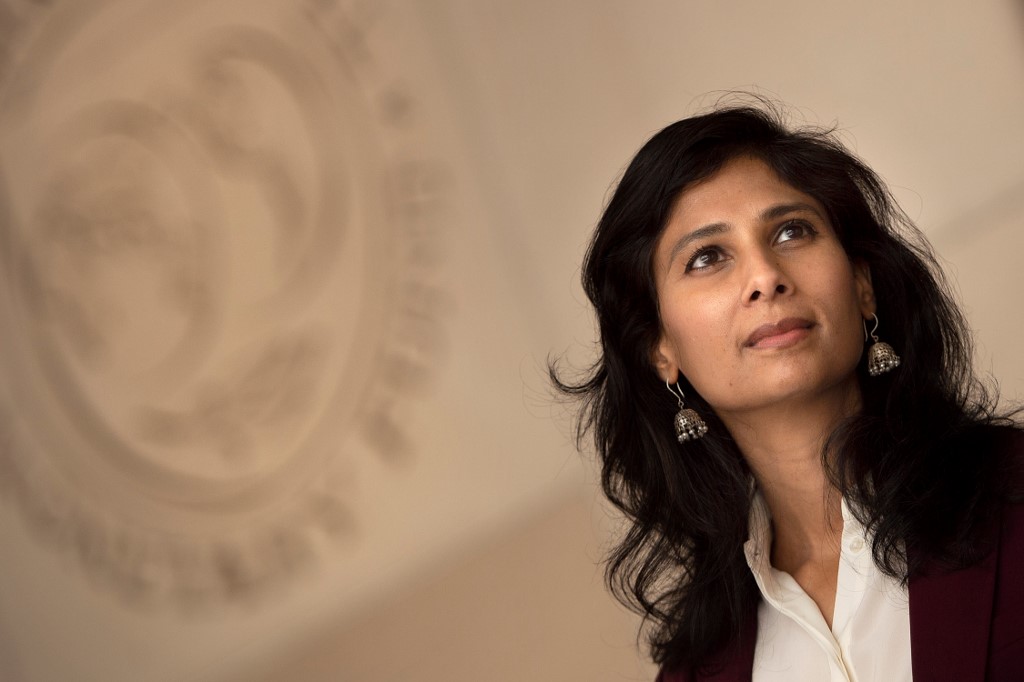(ATF) The International Monetary Fund (IMF) opened its annual spring meeting on Tuesday April 6 with an upgrade in its forecast for 2021 global growth to 6% from a previous prediction of 5.5%. China and India are expected to see the biggest rebound from the effects of the Covid pandemic in 2020, with growth of +8.4% and +12.5%.
The IMF now expects 2022 global growth of +4.4%, with China projected to grow by +5.6% next year and India by +6.9%.
The IMF also backed US Treasury Secretary Janet Yellen’s call for a move towards a global minimum level for corporate tax rates, and warned that a divergent recovery from the pandemic could put financial stability at risk, with rising rates a threat to global markets.
“The upgrades in global growth for 2021 and 2022 are mainly due to upgrades for advanced economies, particularly to a sizeable upgrade for the United States (by 1.3%) that is expected to grow at 6.4% this year. This makes the United States the only large economy projected to surpass the level of GDP it was forecast to have in 2022 in the absence of this pandemic,” IMF chief economist Gita Gopinath said in a commentary on the projections.
“Other advanced economies, including the euro area, will also rebound this year but at a slower pace. Among emerging markets and developing economies, China is projected to grow this year at 8.4%. While China’s economy had already returned to pre-pandemic GDP in 2020, many other countries are not expected to do so until 2023.”
In an online briefing with reporters as the IMF’s spring meeting got underway in Washington DC, Gopinath also backed Yellen’s call on Monday April 5 for a move towards a global minimum tax rate.
Tax shifting and avoidance
Gopinath said current disparities in national corporate tax rates had triggered “a large amount” of tax shifting and tax avoidance, reducing the tax base on which governments could collect revenues to fund needed economic and social spending.
“It is a big concern,” Gopinath said. “We are very much in favour of a global minimum corporate tax.”
French finance minister Bruno Le Maire said on Tuesday that a global deal on cross-border taxation was within reach as he welcomed the pledge by Yellen to work on a global corporate minimum rate.
Gopinath said the IMF had not taken a position on the ideal level for such a tax rate, adding that governments would need to replenish funds after massive spending to contain the pandemic and mitigate its economic impact.
“The hope is that they will move forward.. to have more inclusive, sustainable, green economies, and that would require measures both on the revenue side and on the expenditure side,” she said, adding that each country would have to tailor its own actions on the tax front.
Gopinath and other IMF officials have noted that economies are recovering at divergent paces and that varying monetary policies could threaten market stability
A rise in US interest rates – where the benchmark 10-year US Treasury yield has moved from below 1% at the start of this year to almost 1.70% today – is a particular threat.
Further US rate rises could cause inflated asset valuations to unwind in a dangerous manner and recovery prospects to deteriorate.
“The second big risk is to financial conditions. We see multi-speed recoveries and we have seen interest rates go up. If interest rates go up even further in a more disorderly fashion than that could have negative implications for several countries, especially for some highly vulnerable emerging and developing economies,” said Gopinath.
Policy-makers will need to continue supporting their economies while dealing with more limited policy options and higher debt levels than prior to the pandemic, Gopinath added.
“Given that we are not out of the woods, it is very important for policy support to be continued in this crisis. Of course, countries are dealing with high debt levels, so they’ll have to make sure this support is better targeted and well-tailored to countries specific economic conditions, the stage of the recovery they are in and the structural characteristics of the economy,” she said.
She also urged central banks to keep access to money easy in the current environment.
“Monetary policy should also remain accommodative while proactively addressing financial risks that we do see using macro prudential tools,” said Gopinath.
Her IMF colleague Tobias Adrian added a further warning about the risks to emerging markets.
“While government bond yields have also risen somewhat in countries in Europe and elsewhere, albeit less so than in the United States, the greatest concern comes from emerging markets, where investor risk appetite may shift quickly. With many of those countries confronting large external financing needs, a sudden sharp tightening in global financial conditions could threaten their post-pandemic recovery. The recent volatility in portfolio flows to emerging markets is a reminder of the fragility of these flows,” said Adrian, a former US Federal Reserve official who is now director of monetary and capital markets at the IMF.
























